by Brian Hioe
語言:
English
Photo Credit: Gage Skidmore/CC
IT IS STRANGE to observe the means by which many otherwise sharp western observers on Taiwanese politics, particularly Americans, continue to cling to strange delusions regarding Trump’s potential positive influence on Taiwan or at least his lack of any harmful influence on Taiwan. By simply pointing out the obvious regarding Trump, one finds one’s self being angrily accused of being ideological or having it out for Trump because of one’s leftist views. Perhaps this all simply returns to the fact that many western observers of Taiwanese politics cannot think outside a quite narrow frame of politics and to suggest alternative views provokes instinctive outrage, ultimately returning to how they conceive of their own roles as westerners who attempt to act in Taiwan’s best interest.
Such was the case regarding recent reactions from longtime commentator on Taiwanese politics Michael Turton to recent articles in New Bloom by me raising concern about dangers for Taiwan following recent comments by Trump claiming that South Korea had once been part of China should be cause for concern for Taiwan, given China’s claims of sovereignty over Taiwan. And so, despite assurances by US government officials that Trump had eventually come around to understanding American One China Policy and understood the complicated relation between the US, China, and Taiwan, I found reason to be skeptical. Of course, South Korea has never been part of China, despite once being a tributary state of China. Consequently, I thought it remained wholly possible that Trump could sometime in the near future make an unwise statement about Taiwan which would be deleterious to Taiwan’s status in the international sphere which would be widely reported on in the world. Far from fear-mongering, that seemed like a logical supposition to me.
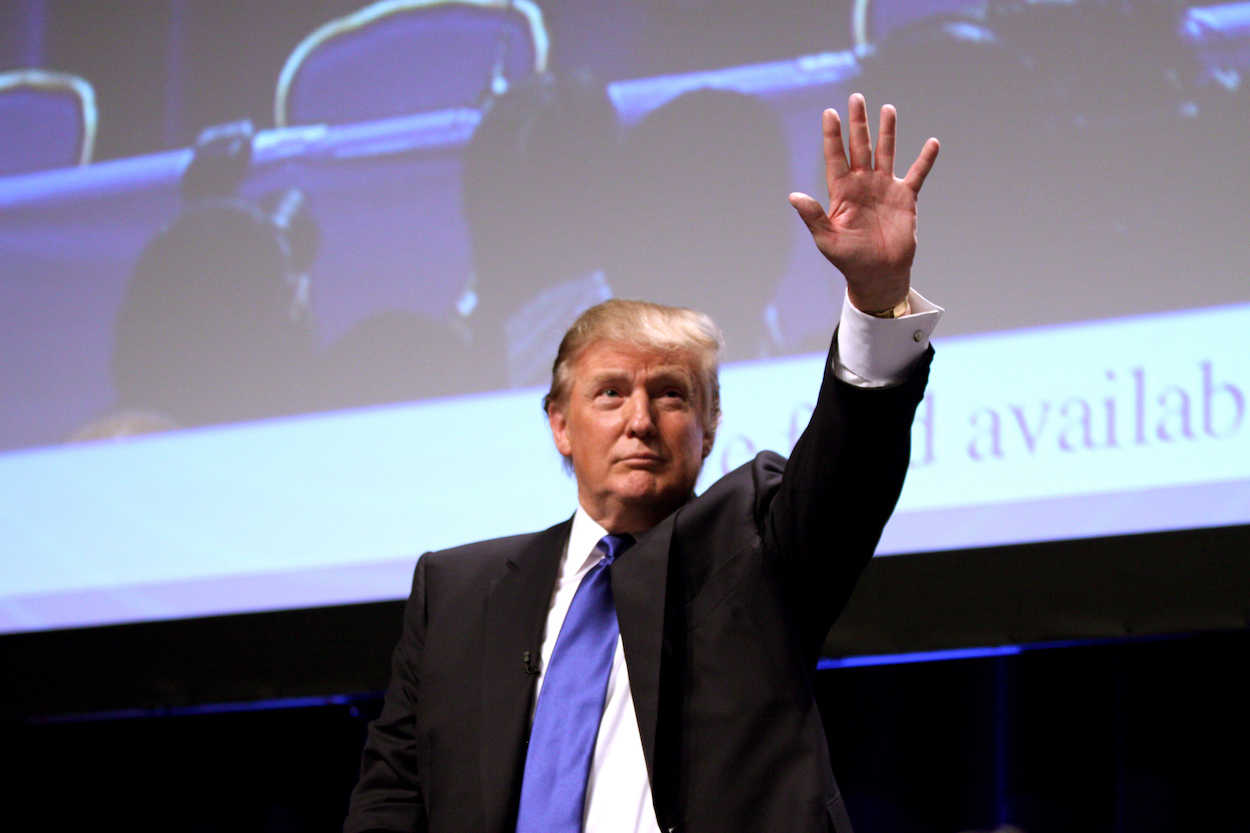 Donald Trump. Photo credit: Gage Skidmore/CC
Donald Trump. Photo credit: Gage Skidmore/CC
In general, Trump has proven himself to lack any basic understanding of foreign policy whatsoever, seeming to not know which country he had authorized missile strikes in an interview, as well as not seeming to know the name of North Korea’s leader, never mind the international outcry which had followed Trump’s authorizing US missile strikes in Syria and the global tensions raised by Trump threatening strikes against North Korea in the event of an attempted nuclear weapons test by the rogue nation, then it later being discovered that any action vowed by Trump had merely been a bluff. These are by no means the actions of a “normal” American presidential administration in foreign affairs, even if we are to view the rapidly self-imploding actions of the Trump administration domestically in a completely different frame from its foreign policy.
Questioning Trump’s competency and raising the continued need to be wary of Trump, then, seemed to me to be a simple matter of connecting the dots. This would merely be Occam’s razor, that is, the general principle that the simplest explanation is probably the most correct one. Nevertheless, this would lead me to be labelled “ideological” and fear-mongering by Turton, who also made the claim that despite much turmoil in previous months about the possibility of Trump breaking from US precedents in terms of its Taiwan policy, the fact was and remained that US policy had not changed in the end. And so, apparently, Trump had been in command of the situation all along.
On social media, Turton would later scoff rather condescendingly at the view that Taiwan had anything to fear from America altogether, never mind that it has been a specter raised by Sunflower movement student leaders, senior Taiwanese government officials, and myself that Taiwan might become used as a bargaining chip by Trump. Turton would later lash out at an article in the Taiwan Sentinel by former Taiwan AP bureau chief Peter Enav similarly questioning Trump’s competency. Turton would claim rather strangely that Trump’s actions were no different from those of past Republican presidents, downplaying the undue influence that Trump’s son-in-law Jared Kushner has had in steering Trump’s policies in a seemingly pro-China direction, despite it is precisely this which has no precedent for any other Republican president. Turton would also leap onto the rather strange claim that my questioning of Trump’s competency came from my leftist views, with the claim that like many leftists, my viewpoints are critical of American imperialism but ignoring of Chinese imperialism.
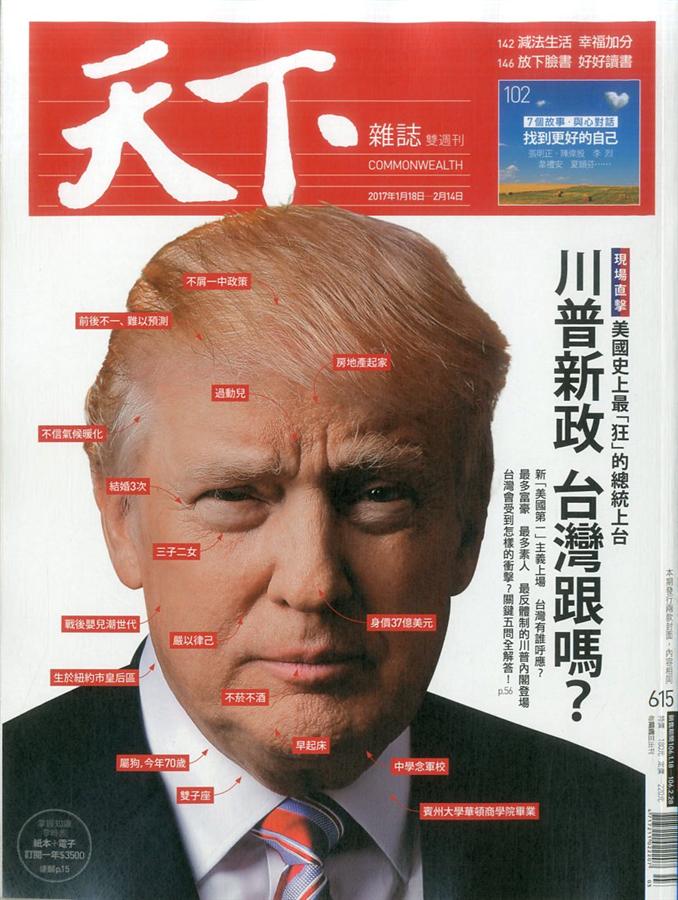 Commonwealth Magazine cover in Taiwan regarding Trump. Photo credit: Commonwealth Magazine
Commonwealth Magazine cover in Taiwan regarding Trump. Photo credit: Commonwealth Magazine
As for the latter of Turton’s views, seeing as myself and New Bloom’s criticism of Chinese imperialism is rather self-evident, there is no real need to respond. With our website intermittently blocked in China, periodic attacks from members of the “50 Cent Party”, and some members of ours possibly blocked from entering China after some of our articles have provoked firestorms within China specifically on the point of criticizing so-called leftists in China for their uncritical endorsement of Chinese imperialism, it is grasping for straws to claim that New Bloom or myself are insufficiently critical of Chinese imperialism.
But we may suggest that for Turton and many others, criticizing American imperialism automatically means being supportive of Chinese imperialism. Moreover, even raising the possibility of America or other western countries potentially having a negative effect on Taiwan’s ability to maintain its de facto independence causes reflexive defensiveness in a very bizarre manner.
Reflexive Defensiveness From Western Commentators About The Trump Administration?
FOR MANY western commentators, perhaps returning to their own senses of identity as westerners who seek to act in Taiwan’s best interest, Taiwan can only depend on western countries as their salvation. To suggest that there are possibilities for Taiwan outside of solely relying on western nations provokes anger, even when this is actually an illogical view.
Is this not simply underlying American nationalism, leading to blindness about the effects of America’s actions in the world insofar it prompts reactions from the population of Taiwan, South Korea, and other Asian nations? Much of this is common sense to individuals from smaller countries subject to the undue influence of larger countries.
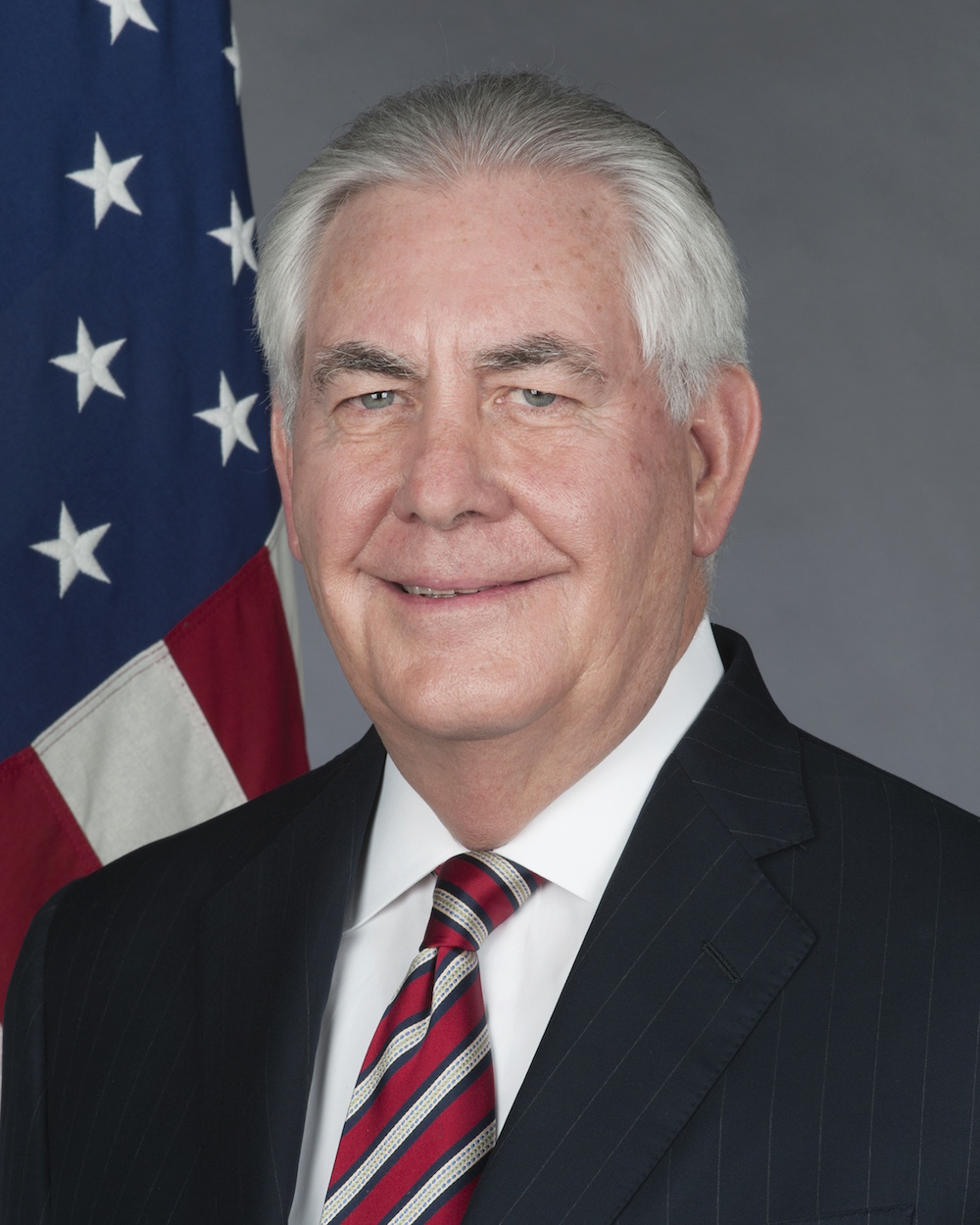 US Secretary of State Rex Tillerson. Photo credit: US State Department/CC
US Secretary of State Rex Tillerson. Photo credit: US State Department/CC
It is a basic tenet of the rational actor model of foreign policy analysis that no nation-state acts for the benefit of another nation-state without some sense of self-interest in mind. Whether in the case of America or other nation-states, there is no logical benefit from unconditional support of Taiwan. Consequently, support of Taiwan is always conditional. This is part of the reason why Taiwan cannot solely rely on appealing to the rational interest of state actors for support, seeing as support of Taiwan beyond a certain point would always be irrational. China is always larger than Taiwan and always be larger than Taiwan. In part, this is why I have called many times in the past for Taiwan to seek the aid of non-state actors through moral appeals instead of only seeking the aid of state actors to the exclusion of everything, seeing as moral appeals are not fundamentally grounded upon a rational cost-benefit analysis which will never work out in Taiwan’s favor beyond a certain point, given how much larger China is compared to Taiwan.
It is fundamentally not a rational argument to call for state actors to support Taiwan in any and all cases, but already a moral one. Precisely because states make decisions with their rational interests in mind, support for Taiwan will always be tenuous.
It is also a basic tenet of international relations that smaller nation-states as Taiwan always face the intrinsic dilemma of that they may face the coercion of larger nation-states. As such, the possibility of the US or another powerful nation-state using Taiwan as a bargaining chip for its dealings with China is not an irrational fear; it is the ever-present condition of Taiwan’s state in the world, as well as that of any other smaller nation-states facing larger nation-states. Such relations are always uneven.
Indeed, on the contrary, it is pure ideology to claim that, after much uncertainty from the Trump administration following the Trump-Tsai phone call, we should forget about that period of uncertainty and instead cling to faith in the Trump administration to maintain stable US-Taiwan relations because in the end, there was no shift in US policy. Historically, it should be blindingly apparent that America has hardly proved the best ally for Taiwan with its willingness to suspend Taiwan in the limbo of “strategic ambiguity” when it comes to questions of support. Furthermore, America was the country which began the policies that have left Taiwan in the diplomatic limbo in which it remains in today. Yet the claim is made to place one’s faith in America nonetheless. Sometimes justifications are made as that there are individuals in the Trump administration who have historically acted for Taiwan’s benefit. But this, too, is an irrational blind faith argument.
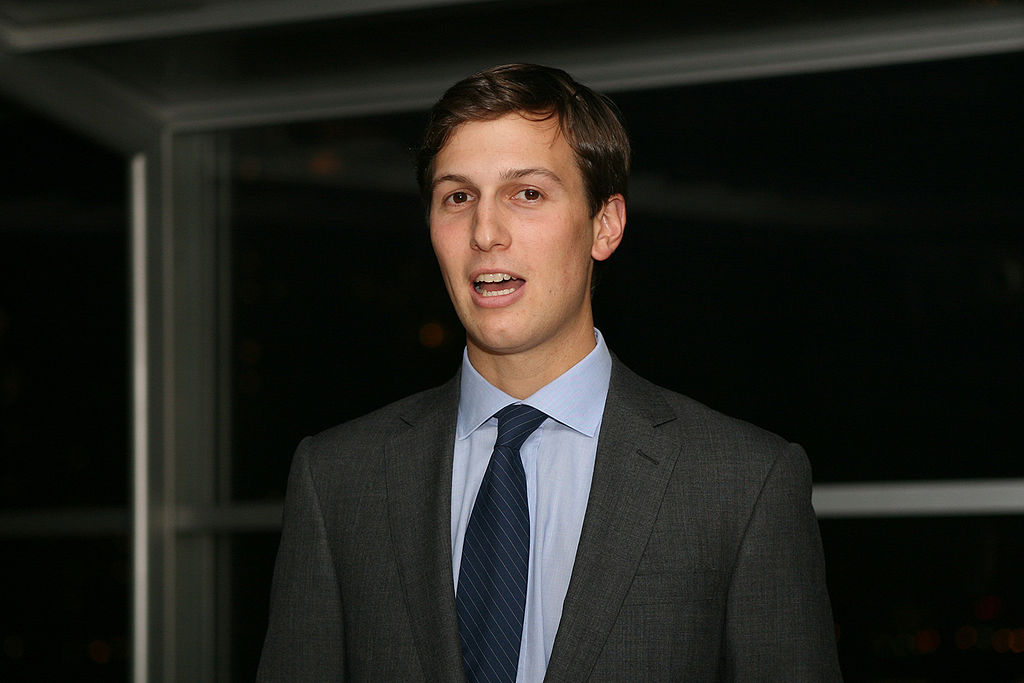 Jared Kushner. Photo credit: Lori Berkowitz Photography/CC
Jared Kushner. Photo credit: Lori Berkowitz Photography/CC
As posited by the organizational process and governmental bargaining models of foreign policy analysis, governments are always composed of different bureaucracies and agencies striving to increase their position. There may be individuals within the Trump administration who have historically been “friends of Taiwan,” but this does not mean they will win out in factional and warfare within the Trump administration either.
On the contrary, all signs are that individuals who call for stepping up support to Taiwan and greater American opposition to China are losing to the pro-China faction of the Trump administration right now, as led by Jared Kushner. If there are longtime friends of Taiwan who have become part of the State Department under Rex Tillerson, all evidence is that Tillerson has little influence within the Trump administration at present. Reflective of broader trends within the Trump administration, Tillerson, too, eventually walked back the hawkish rhetoric on China that he expressed early in his tenure as secretary of state to express a conciliatory position towards China.
Even if the status quo has held so far, it is not fearmongering in the slightest but a wholly rational concern to suggest that consequently the possibility exists that the status quo may not hold in the future. The suspension of US arms sales to Taiwan, which occurs on a regular basis under US presidencies, for example, is a telling sign of the internal state of the Trump administration at present with regards to the swing towards conciliatory policy with China since Trump’s meeting with Xi Jinping. If many previously pointed to the fact that Trump plans arms sales to Taiwan as a sign of regularity in the Trump administration, the current suspension of these sales is a bad sign.
It is another blind faith argument to claim that because the status quo has held so far it means the Trump administration knows what it is doing, then, something which goes against all evidence to the contrary. Again, who is ideological then? And, why then, is there such blindness to America’s relation to Taiwan and even outrage at the possibility that Taiwan is increasing skeptical of America under Trump?
The Need To Think Outside A Purely Western Viewpoint In International Relations?
WHILE I HAVE raised numerous times in the past that Taiwanese themselves are often not sufficiently aware that the possibility of being used as a chess piece by America the permanent condition of its relation to the United States. However, Trump’s rapid reversals in foreign policy have led increasingly more Taiwanese to be aware that this is Taiwan’s permanent state of being. This also seems to be true of other nation-states in the Asia Pacific, inclusive of Japan, South Korea, and even Australia, which is not treated the same way as other nation-states in the Asia Pacific because it is a “western” nation, with growing anxiety in these locations about the fate of their alliance relations with the US.
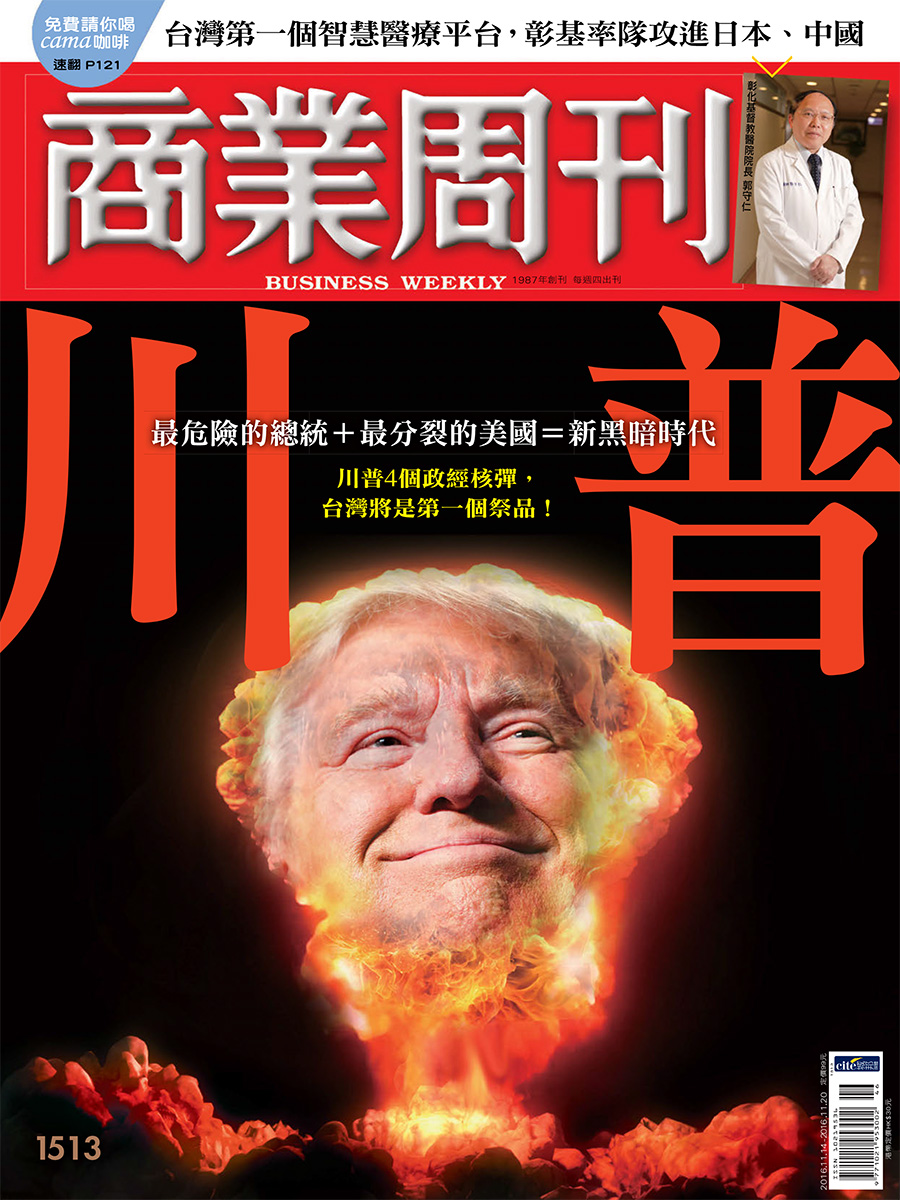 Business Weekly cover in Taiwan regarding Trump. Photo credit: Business Weekly
Business Weekly cover in Taiwan regarding Trump. Photo credit: Business Weekly
When I raise Japanese or South Korean political developments regarding growing skepticism of Trump and suggest that this potentially presages political developments in Taiwan, what I mean to say is that Taiwan is obviously not exempt from regional trends. Sometimes we may note that many Taiwan experts seem to have oddly lacking knowledge of Taiwan’s neighboring countries. Surely, some knowledge of Taiwan’s neighboring countries is not too much to ask for? But this, too, seems to stem from understanding regional affairs from a purely western perspective and a failure to grasp the structural conditions of Asia.
Therefore, the view that Taiwan has nothing to fear from America returns to that individuals from large western countries oftentimes fail to grasp Taiwan’s fundamental dilemma as a small non-western country because of a failure to think outside of their own perspective as individuals from large nations which have nothing to fear from anybody, particularly in the case of Americans, Taiwanese-Americans as myself (who, frankly, often also cannot think outside of their own senses of identity as privileged Americans), or other westerners.
This is a failure to understand the dilemma of smaller nations, much less non-western nations. For while there are many small western nation-states, they never have as much to lose from coercion by western nation-states, as much a product of geography as it is of the longue duree history of globally uneven conditions of development. Even in the case of nations which are as statistically large as South Korea, Japan, Taiwan, the Philippines or other nation-states of the Asia Pacific, these are nations which remain marked by uneven relations with western countries despite that statistically, they should be the equal of western countries. It is such that statements by Trump raise a great deal of worry, even when they remain merely just statements, because of the possibility that they may presage highly dangerous future developments. Nations as these have all too long a history of being used as geopolitical chess pieces by America and so are right to be wary.
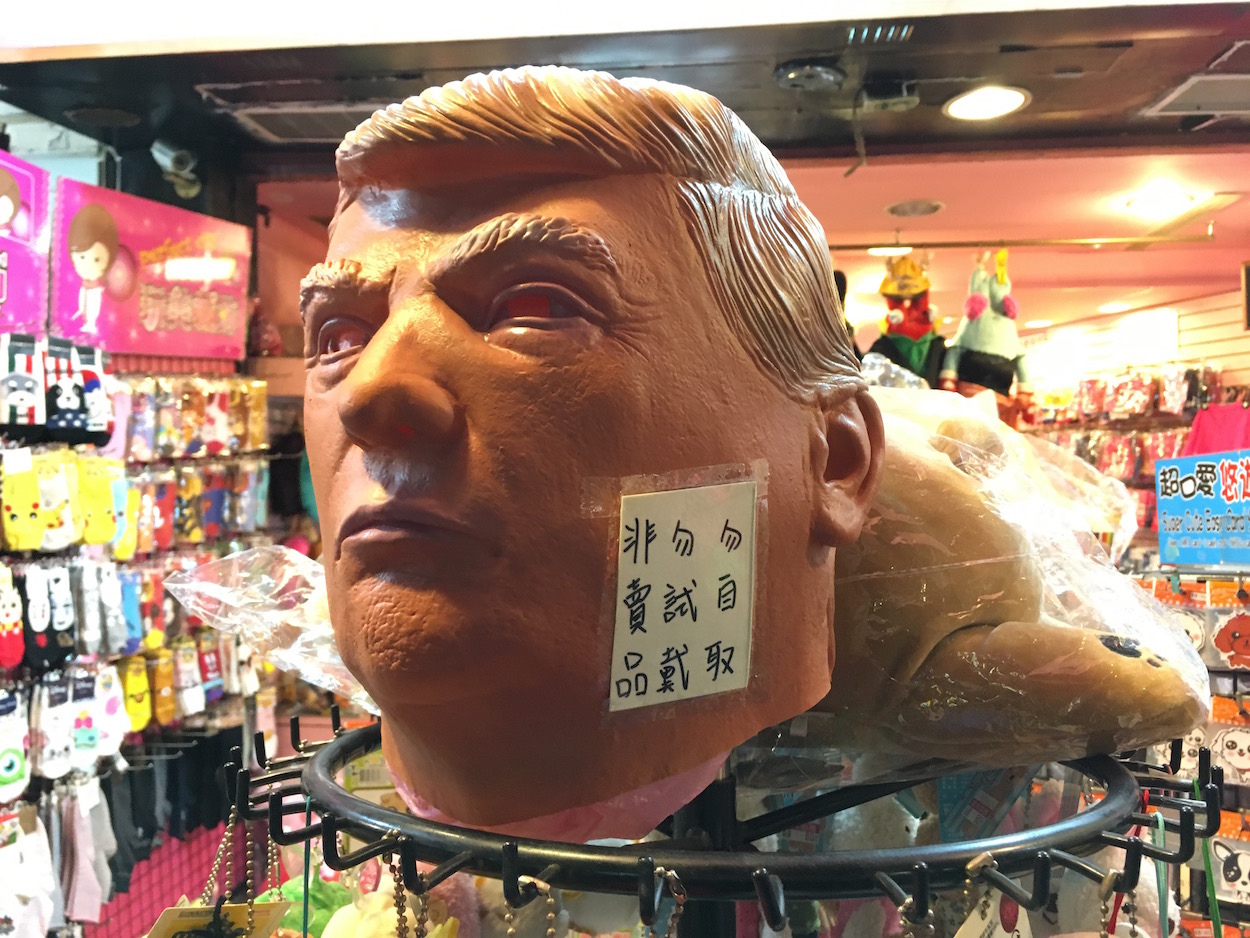 Trump mask seen in a night market. Photo credit: Brian Hioe
Trump mask seen in a night market. Photo credit: Brian Hioe
In this respect, while there is much lambasting of individuals whose views of Taiwan are all too remote by many commentators on Taiwanese politics, seeing as they may not have visited Taiwan in years and their views of Taiwan are shaped from abroad in Beijing, those commentators who live in Taiwan as long-term residents but are blind to the growing fear of Taiwanese about Trump do not actually prove much better if they are so dismissive of Taiwanese wariness of America. Indeed, as with Japan and South Korea, skepticism of Trump is on the rise in Taiwan and the causes of this should be obvious. Again, skeptical views of Trump have been expressed by Sunflower movement student leaders, senior government officials, and others. Likewise, such doubts are expressed on a daily basis by regular Taiwanese and so should also be visible in everyday life. Does this somehow go unnoticed even by those who live in Taiwan? Or do they simply turn a blind eye to this, because this offends their own sense of American or western identity?
This is to say that individuals from western countries commenting on Taiwanese politics in some sense, need to be aware of how their sense of identity shapes their perceptions of international affairs and, in many cases, their own privilege. Coming from western countries, they should not be so dismissive of Taiwan’s fears of being used as a chess piece by larger countries because they hail from countries powerful enough to never have to worry about being manipulated in this way–particularly if they hail from those countries. To think otherwise is to fall into a sense of insularity which derives from being unable to see the world from outside the perspective of the “center” and understand what international affairs is like for those who hail from the “periphery”.
This is not to deny the positive role such individuals can have. On the contrary, the role of individuals from America or other western nation-states are positioned to make the necessary criticisms of how the nation-states they are from use Taiwan for their own benefit, never mind what the effects on the democratic Taiwanese people are. In this sense, there is a role for those westerners in Taiwan who care about Taiwan and hope to act in Taiwan’s best interest. But this requires seeing beyond one’s identity as just someone hailing from a powerful western country and, in fact, realizing the need to call attention to Taiwan’s plight as a small country bullied by larger, more powerful ones.

